Nobody wants to live in a home with overflowing toilets, burst pipes, or dirty drains. This is why it is important to avail of professional plumbing services from a trusted company.
Licensed Platinum Plumbing professionals use their knowledge of codes and regulations to provide effective solutions that prevent issues from reoccurring. They also have access to tools and equipment that are not available to the general public, such as sewer cameras.
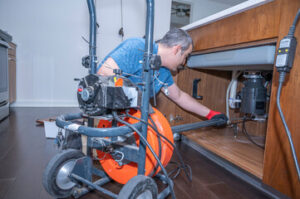 They Have the Right Tools and Devices
They Have the Right Tools and Devices
Plumbing plays a vital role in a home or office space. Whenever something goes wrong with the pipes, it can result in major problems such as water flooding and property damage. Therefore, it is important to hire a professional plumber for the job. A professional plumbing service will have the right tools and devices to fix your issues quickly and efficiently. They will also have the experience to handle even the most complex of plumbing issues.
One of the biggest mistakes that homeowners make when trying to fix their plumbing problems is using incorrect or low-quality parts. This can lead to further damage and cost you more money in the long run. Professional plumbers use the best quality parts to ensure that your plumbing system is working correctly. They also have the right tools to do their jobs, such as a drain inspection camera, hydrojetting machines, and PVC piping.
Many plumbing jobs require specialized tools. For example, a plumber may need an Allen wrench to tighten or loosen screws. Likewise, they may need a hacksaw to cut through metal pipes. Moreover, they need to have the right software to manage their business and communicate with clients. This is where a plumbing management platform can help.
Another advantage of hiring a professional plumbing service is that they will be able to diagnose the problem and offer permanent solutions. They have extensive training and knowledge of all types of plumbing systems. This allows them to find the source of the problem and fix it effectively. In addition, they can provide you with valuable advice on how to prevent future plumbing problems from occurring.
If you are experiencing excessive fixture leaks, it could indicate a larger issue that needs to be addressed. For instance, it might be caused by excessive water pressure entering the home. Licensed plumbers can use their experience, skills, and knowledge to determine the actual cause of the issue and make proper repairs.
Professional plumbers can also help you with other services, such as sewer line repair. It is crucial to have your sewer lines repaired regularly to avoid clogs and floods. Plumbing professionals know how to properly install and maintain your sewer lines and can help you save money on future repairs.
They Deliver Permanent Solutions to Plumbing Problems
Professional plumbing services deliver long-term solutions to a variety of problems such as clogged drains, water leaks, and faulty faucets. These services also help prevent future issues such as flooding, sewer backups, and discolored water. They can also advise homeowners on how to keep their plumbing systems in good condition.
Professional plumbers have undergone rigorous training and an apprenticeship, making them qualified to handle any plumbing task. In addition, they have access to tools and equipment that are not readily available to the general public. This includes high-quality, specialized equipment such as video cameras for sewer inspections. They are also aware of local plumbing codes and regulations, ensuring that their work is compliant.
Moreover, professional plumbers have years of experience dealing with different plumbing issues. They can quickly identify the source of the problem and recommend a solution that is safe for your home or business. They can also fix a wide range of other issues, including broken toilets and faucets, leaking pipes, and even installing new fixtures.
Another advantage of hiring a professional plumbing service is that they can save you time and money in the long run. Plumbing problems can cause serious damage if they are not dealt with immediately. These damages can also affect the overall value of your property. If you are planning to sell your home, a professional plumbing service can help you maintain your plumbing system and increase the value of your property.
In addition, professional plumbers are highly trained to handle hazardous materials. They use rubber gloves, protective eyewear, and shoe covers to protect themselves from dangerous contaminants. Moreover, they will clean up the work area once they are finished. They will also take care not to disturb or harm your home furnishings.
Plumbing is a vital component of your home or business. A damaged or outdated plumbing system can disrupt your daily activities and cause serious health hazards. To protect your family and your property, you should hire a professional plumbing service to handle all of your plumbing needs. These professionals will ensure that your plumbing system is working properly, and they will also provide you with advice on how to avoid costly repairs in the future.
They Are Licensed
The plumbing system in any house is complex and requires special skills to be maintained. Plumbers must have extensive knowledge of all types of pipes and water systems to accurately diagnose problems, offer effective solutions, and perform high-quality work. They also undergo rigorous training to keep up with the latest industry standards. Many plumbing issues can cause severe damage if left unattended. Even the smallest mistake can result in thousands of dollars in damages. Hiring a professional plumbing service to handle the problem ensures that the repairs will be done correctly and quickly.
One of the most important things to consider when hiring a plumbing company is their licensing and insurance. Licensing requirements vary from state to state, but most require a high school diploma, prior experience, and completion of a plumbing apprenticeship program. Some states also require a background check and criminal record check before issuing a license.
Another reason to hire a professional plumber is their expertise in handling emergencies. Plumbing emergencies can include bursting or flooding of the pipes, blocking of the toilets and sinks, and more. A professional plumbing service will have the tools and equipment needed to fix these issues immediately, allowing them to save you money in the long run.
Most professional plumbers are licensed and insured, so they will be able to provide you with better service than someone who is not. They also have a wealth of knowledge on plumbing systems and can easily identify any issues that are not easy to see.
Professional plumbers also have access to professional plumbing supplies that are not available at local home stores. These products are usually of a higher quality and will last longer than those sold to homeowners. Additionally, they can use specialized equipment for inspections such as sewer camera inspections, which is not something that the average homeowner can do. In addition to these benefits, professional plumbers will also be able to give you advice on how to maintain your plumbing system and prevent future problems. They will also be able to tell you if you are using the right water filtration systems for your needs.
They Have a Good Reputation
Plumbing is a skilled trade that requires professional training and years of experience. Licensed plumbers have extensive knowledge of various plumbing systems and issues and use advanced tools to fix them quickly and efficiently. They also follow the latest industry standards and codes to ensure their work is safe and high quality. This means that they will not only solve your plumbing problem but will also make sure it is fixed permanently.
Plumbing problems can be very frustrating and sometimes dangerous if not dealt with properly. While there are some tasks that you can easily do yourself like tightening a loose faucet or clearing a clogged drain, it is best to leave the complicated ones to the professionals. One wrong move and you may end up causing even more damage to your home or worse, hurting yourself. Professional plumbers are trained to assess the situation correctly and safely resolve it in no time.
Moreover, licensed plumbers have the skills and expertise to install different types of plumbing appliances like water heaters and water softeners. They can even replace your existing pipes with new ones if needed. In addition, they can also help you maintain your plumbing system by providing regular inspection and maintenance services. This will save you from costly repairs in the future.
A professional plumbing service will have a good reputation in the community. They will be able to provide you with fast and reliable service at competitive prices. They will also offer a warranty on their work which will give you peace of mind knowing that the job will be done correctly.
Besides offering plumbing services, professional plumbing companies will have a large inventory of parts and supplies that you can purchase for your repair or installation projects. They will also have a knowledgeable staff that can assist you in finding the right products for your specific needs. They will also be able to recommend the best plumbing parts for your budget and lifestyle. They will not only give you a list of recommended products but also explain the differences between them and what would be the best option for your specific situation.

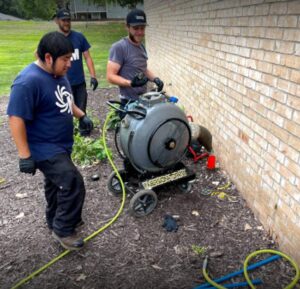
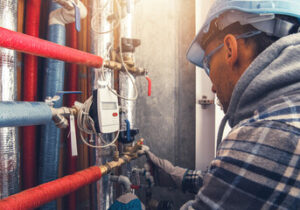 Many people find plumbers through word-of-mouth referrals from family and friends. Having a good reputation is an important factor when choosing a plumber. If a plumber is known for doing quality work at a fair price, they will often get repeat business from satisfied customers. On the other hand, plumbers with a poor reputation for cutting corners and ripping off customers will usually need help finding new clients.
Many people find plumbers through word-of-mouth referrals from family and friends. Having a good reputation is an important factor when choosing a plumber. If a plumber is known for doing quality work at a fair price, they will often get repeat business from satisfied customers. On the other hand, plumbers with a poor reputation for cutting corners and ripping off customers will usually need help finding new clients.
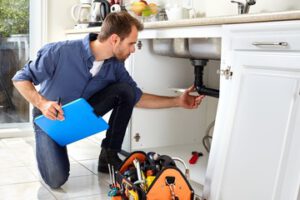 In 2016, the Department of Buildings (DOB) introduced Local Law 152 which requires that all buildings with exposed gas lines undergo regular inspections to ensure their safety. While it took a few years for the DOB to finalize the details of this law, it is now in full effect with new requirements regarding how often buildings must be inspected, who can perform the inspections, and more.
In 2016, the Department of Buildings (DOB) introduced Local Law 152 which requires that all buildings with exposed gas lines undergo regular inspections to ensure their safety. While it took a few years for the DOB to finalize the details of this law, it is now in full effect with new requirements regarding how often buildings must be inspected, who can perform the inspections, and more.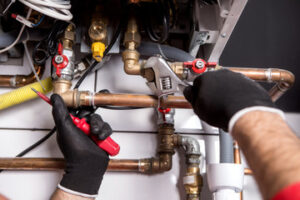 This means that it is more likely for commercial plumbing to experience issues like leaks and clogs. So what separates commercial plumbers from residential plumbers? Read on
This means that it is more likely for commercial plumbing to experience issues like leaks and clogs. So what separates commercial plumbers from residential plumbers? Read on 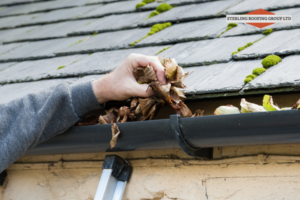

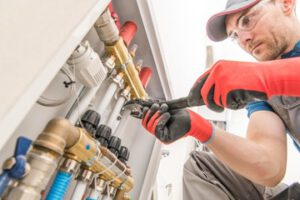 An expert plumber is a professional with extensive training and the qualifications to handle any plumbing issue. These professionals have a deep understanding of the mechanics and physics of plumbing systems and can quickly diagnose and fix any problems that may arise. They have the knowledge and tools required to repair leaks, install new pipes, and maintain the overall health of a plumbing system.
An expert plumber is a professional with extensive training and the qualifications to handle any plumbing issue. These professionals have a deep understanding of the mechanics and physics of plumbing systems and can quickly diagnose and fix any problems that may arise. They have the knowledge and tools required to repair leaks, install new pipes, and maintain the overall health of a plumbing system.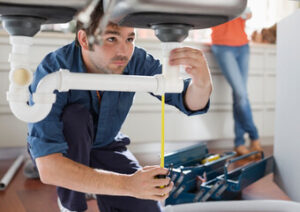 Other trenchless methods include spray lining and brush coating. Both techniques can halt corrosion in cast iron pipes and eliminate sewer gas from leaky joints. If your sewer line leaks, an expert plumber can repair the trenchless sewer. This method
Other trenchless methods include spray lining and brush coating. Both techniques can halt corrosion in cast iron pipes and eliminate sewer gas from leaky joints. If your sewer line leaks, an expert plumber can repair the trenchless sewer. This method